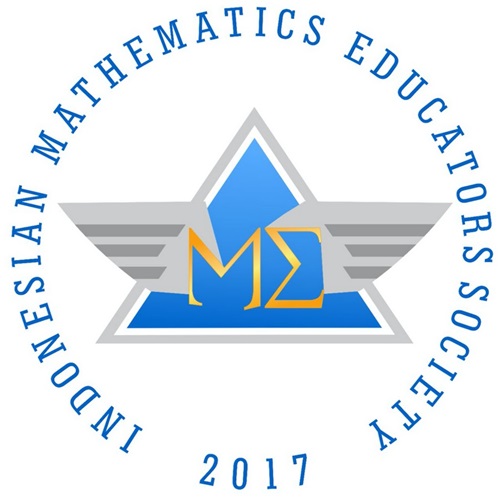Mathematical Problem-Solving Ability of Junior High School Students Based on Polya
DOI:
https://doi.org/10.22437/edumatica.v13i03.29287Keywords:
Polya's problem-solving, problem-solving abilityAbstract
Mathematical problem-solving ability is the ability to identify known information, ask questions, adequacy of the information needed, skill in creating or compiling mathematical models, being able to find the right solution strategy, and being able to explain and check the correctness of the solution obtained. This research aims to analyze students' mathematical problem-solving abilities in the topic on mixed integer arithmetic operations based on Polya's problem-solving steps. This research uses a qualitative approach with a narrative research type. The research subjects consisted of 32 junior high school students. Data collection was carried out using mathematical problem-solving ability test instruments and interviews with several selected participants. Data was analyzed based on Polya's problem solving steps. Based on the results of data analysis, students' problem-solving abilities obtained based on these four steps are in the form of students who can determine important information in the problem and can plan solutions resulting in them being able to solve problems more regularly, namely by executing the plans they have planned. After that, students who understand the problem well can also check the correctness of the answers they have obtained. Therefore, it is hoped that this research can help teachers to implement a learning process that can develop problem solving abilities.
Downloads
References
Akbar, P., Hamid, A., Bernard, M., & Sugandi, A. I. (2018). Analisis Kemampuan Pemecahan Masalah dan Disposisi Matematik Siswa Kelas XI SMA Putra Juang dalam Materi Peluang. Jurnal Cendekia: Jurnal Pendidikan Matematika, 2(1).
Darling-Hammond, L., Flook, L., Cook-Harvey, C., Barron, B., & Osher, D. (2020). Implications for educational practice of the science of learning and development. Applied Developmental Science, 24(2), 97-140. https://doi.org/10.1080/10888691.2018.1537791
Fahrilianti, I. W., Wahyuni, E., & Rozak, A. (2019). Analisis Hambatan Belajar (Learning Obstacle) Siswa SMP pada Materi Sistem Persamaan Linear Dua Variabel. Prosiding Seminar Nasional Matematika Dan Sains.
Fatahillah, A., Wati, Y. F., & Susanto. (2017). Analisis Kesalahan Siswa dalam Menyelesaikan Soal Cerita Matematika Berdasarkan Tahapan Newman Beserta Bentuk Scaffolding yang Diberikan. Kadikma, 8(1).
Gulacar, O., Bowman, C. R., & Feakes, D. A. (2013). Observational investigation of student problem solving: The role and importance of habits. In Science Education International (Vol. 24).
Hamapinda, E., Ledu Ngaba, A., Tamu, Y., Nuhamara, I., Studi, P., Matematika, P., Wira, K., & Sumba, W. (2021). Analisis Kemampuan Pemecahan Masalah Matematika Siswa Kelas VII pada Materi Operasi Bilangan Bulat.
Harefa, E. F., & Harefa, A. O. (2023). Analisis Kesiapan Guru Matematika dan Siswa dalam Penerapan Kurikulum Merdeka SMP di Kecamatan Gunungsitoli. Jurnal Suluh Pendidikan (JSP), 11(2).
Hijada, M., & De la Cruz, M. (2022). The Gap between Comprehension Level and Problem-Solving Skills in Learning Mathematics. Universal Journal of Educational Research, 1(1).
Islamiyah, S. (2017). Analisis Kesalahan Siswa dalam Menyelesaikan Soal Operasi Hitung Campuran Kelas III SD Muhammadiyah Wringinanom. Universitas Muhammadiyah Sidoarjo.
Kesumawati. (2009). Peningkatan kemampuan pemecahan masalah matematis siswa SMP melalui model pendidikan matematika realistik. Prosiding: Seminar Nasional Matematika Dan Pendidikan Matematika.
Lestari, I. (2013). Pengembangan Bahan Ajar Berbasis Kompetensi: Sesuai dengan Kurikulum Tingkat Satuan Pendidikan. Akademia.
Mandasari, N., & Rosalina, E. (2021). Analisis Kesulitan Siswa dalam Menyelesaikan Soal Operasi Bilangan Bulat di Sekolah Dasar. Jurnal Basicedu, 5(3), 1139-1148. https://doi.org/10.31004/basicedu.v5i3.831
Muliawati, F. N., & Sutirna. (2022). Analisis Kemampuan Pemecahan Masalah Matematis Siswa. Jurnal Pendidikan Matematika.
NCTM. (2000). Principles and Standards for School Mathematics. Reston: NCTM. Retrieved from epdf.pub_principles-and-standards-for-school-mathematics.pdf.
Polya. (1973). How to solve it, a new aspect of mathematical method (second edition). Journal for Research in Mathematics Education, 15(3).
Munna, A. S., & Kalam, A. (2021). Teaching and learning process to enhance teaching effectiveness: a literature review. In International Journal of Humanities and Innovation (IJHI) (Vol. 4, Issue 1).
Sulistiani, S., Marzuki, & Hamdani. (2019). Kemampuan Peserta Didik dalam Menyelesaikan Soal Cerita pada Pembelajaran Matematika Kelas IV. Jurnal Pendidikan Dan Pembelajaran Khatulistiwa.
Suryadi, Hamdani, & T, A. Y. (2022). Deskripsi Kemampuan Pemecahan Masalah Siswa Kelas VII pada Materi Operasi Hitung Campuran Bilangan Bulat. 11, 1719-1729. https://doi.org/10.26418/jppk.v11i9.58302
Tambychik, T., & Meerah, T. S. M. (2010). Students' difficulties in mathematics problem-solving: What do they say? Procedia - Social and Behavioral Sciences, 8, 142-151. https://doi.org/10.1016/j.sbspro.2010.12.020
Tasya, R. N. (2018). Analisis Kesalahan Operasi Hitung Siswa SMK pada Materi Matriks dengan Pendekatan Pembelajaran Problem Based Learning. Jurnal Pendidikan Tambusai.
Uyen, B. P., Tong, D. H., & Han, N. N. (2021). Enhancing problem-solving skills of 8th-grade students in learning the first-degree equations in one unknown. International Journal of Education and Practice, 9(3), 568-587. https://doi.org/10.18488/journal.61.2021.93.568.587
Widyaningrum, A. Z. (2016). Analisis Kesulitan Siswa dalam Mengerjakan Soal Cerita Matematika Materi Aritmatika Sosial ditinjau dari Gaya Belajar Siswa Kelas VII SMP. Iqra: Jurnal Kajian Ilmu Pendidikan, 1(2).
Yeh, C. Y. C., Cheng, H. N. H., Chen, Z. H., Liao, C. C. Y., & Chan, T. W. (2019). Enhancing achievement and interest in mathematics learning through Math-Island. Research and Practice in Technology Enhanced Learning, 14(1). https://doi.org/10.1186/s41039-019-0100-9
Downloads
Published
How to Cite
Issue
Section
License
Copyright (c) 2023 Nadiatun Firda, Didi Suryadi, Jarnawi Afgani Dahlan

This work is licensed under a Creative Commons Attribution-NonCommercial-ShareAlike 4.0 International License.







